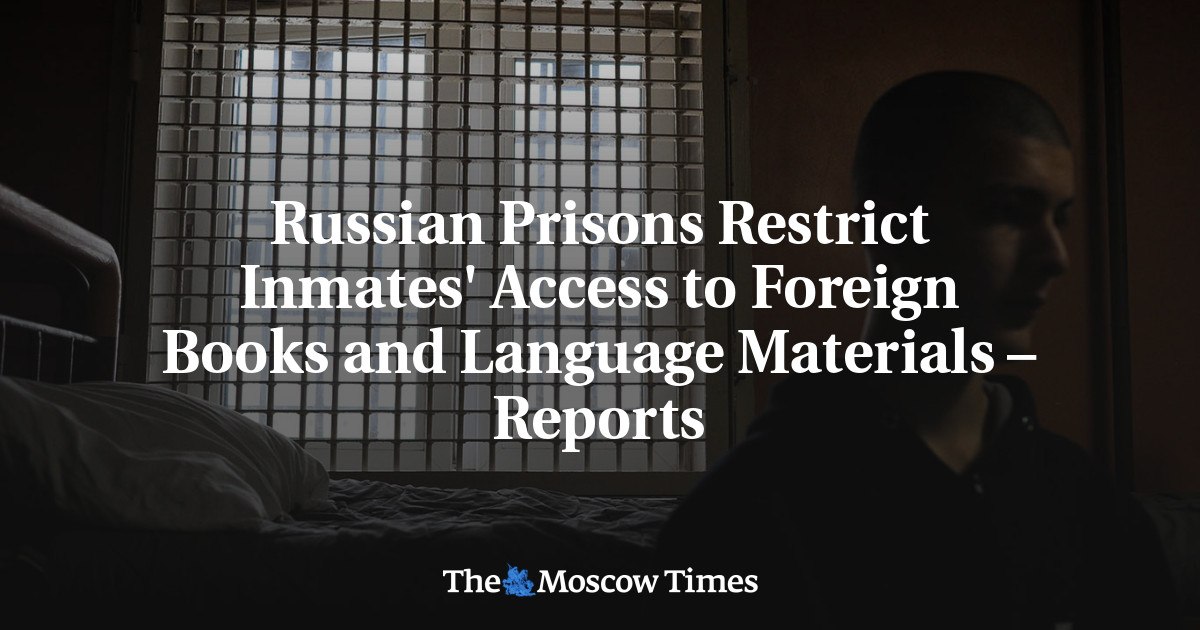
Russian Prisons Restrict Inmates’ Access to Foreign Books and Language Materials
How did your country report this? Share your view in the comments.
Diverging Reports Breakdown
Russian Prisons Restrict Inmates’ Access to Foreign Books and Language Materials – Reports
Inmates across Russia have reported bans on works by foreign authors, language study materials. Joe Hill’s “Heart-Shaped Box’ was confiscated because its skull-decorated cover was deemed inappropriate. A biography of Italian industrialist Enzo Ferrari was allegedly banned because Ferrari is a foreign citizen. Some prisons reject materials based on their perceived effects on inmates’ “psycho-emotional state,” a lawyer says. The Russian prisons are notorious for their harsh conditions, with many inmates enduring bleak living conditions and frequent abuse.
A biography of Italian industrialist Enzo Ferrari was allegedly banned because Ferrari is a foreign citizen. Joe Hill’s “Heart-Shaped Box” was confiscated because its skull-decorated cover was deemed inappropriate, while a book by Russian author Sergei Dovlatov was withheld without explanation.
Sergei Dudchenko, a political prisoner held in Rostov-on-Don’s Detention Center No. 1 for over six months, said authorities permitted him to keep only one of four books sent by supporters.
Inmates across Russia have reported bans on works by foreign authors, language study materials and even mainstream novels as prison censors tighten controls over what prisoners are allowed to read.
Russian prisons are increasingly restricting inmates’ access to foreign literature and books in foreign languages, the independent news outlet Mozhem Obyasnit reported Friday.
In the same facility, other inmates were denied books from the “Fifty Shades of Grey” series as well as materials in French, English and Ukrainian.
Detainees reported similar restrictions at SIZO-6 in Gorelovo near St. Petersburg. Ivan Zabavsky was barred from receiving English language study guides including “English Grammar in Use.”
Music books were also banned at SIZO-5 in St. Petersburg, according to former political prisoner Sasha Skolichenko, who said officials claimed that musical notes could be used to conceal coded messages.
In the Samara region, political prisoner Yulia Koveshnikova reported that her prison prohibited her from reading novels, detective stories or any foreign literature.
“It seems I’m only allowed to read patriotic material, so I’ll need a lot of crossword puzzles and pens to entertain myself,” she wrote.
Books and magazines often disappear during inspection, inmates said, with appeals rarely resulting in access.
Eva Levenberg, a lawyer for leading independent rights project OVD-Info lawyer, said that while extremist materials are prohibited under Russian law, prison administrations exercise broad discretionary powers over which books they permit.
Some prisons reject materials based on their perceived effects on inmates’ “psycho-emotional state,” she told Mozhem Obyasnit.
Levenberg advised families and supporters of prisoners to contact individual facilities before sending books, and noted that arbitrary rejections can be challenged through formal appeals.
Russian prisons are notorious for their harsh conditions, with many inmates enduring bleak living conditions and frequent abuse at the hands of guards.
